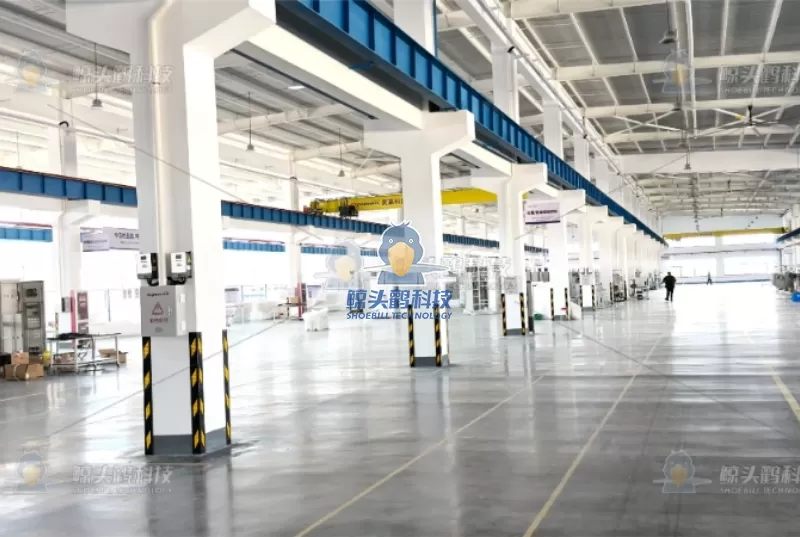In an era defined by rapid digital transformation, the demand for efficient, secure, and scalable data center infrastructure has never been higher. Data center infrastructure (DCI) is critical to businesses, enabling them to store, manage, and process vast amounts of data required to operate effectively. At the core of this infrastructure is the DCI box, a pivotal component that ensures optimal functionality, connectivity, and security within data centers. This article WDMLight delves into the essential aspects of the DCI box, exploring its benefits in modern data centers.
What is a DCI Box?

The term "DCI box" refers to an integrated, modular solution for data center infrastructure that supports power distribution, cooling, networking, and security needs. Designed with flexibility and scalability in mind, a DCI box can support a range of applications, from basic networking to high-performance computing environments. It is built to house and protect servers, storage systems, networking equipment, and other essential data center hardware, acting as a centralized unit that enhances the reliability and efficiency of data processing.
Unlike traditional data center racks, which typically serve as basic storage units, the DCI box encompasses intelligent infrastructure management capabilities. Equipped with monitoring, control, and automation features, the DCI box simplifies the management of data center resources, enabling real-time performance optimization and quick response to issues. These features make the DCI box a vital asset for organizations aiming to meet growing data demands with limited physical space, reduced energy consumption, and optimal resource utilization.
Benefits of Using a DCI Box in Data Center Infrastructure
The adoption of a DCI box in data centers presents numerous advantages. Its modular design, combined with advanced power, cooling, networking, and security features, makes it a valuable addition for companies of all sizes. Below are some of the primary benefits of incorporating a DCI box into a data center environment:
1. Enhanced Scalability
One of the defining characteristics of a DCI box is its modular architecture, which allows for scalability. Companies can expand or modify the box according to their evolving needs without disrupting existing operations. For example, additional network modules or storage units can be added to the DCI box as data demands increase. This flexibility enables businesses to align their infrastructure with growth, ensuring seamless operations without the need for major overhauls.
2. Increased Energy Efficiency
With intelligent power distribution and cooling systems, the DCI box helps optimize energy consumption. By providing only the necessary power and cooling to specific components, the DCI box reduces wasted energy and helps lower operational costs. Real-time monitoring further enables the identification of inefficiencies, allowing data center operators to adjust power and cooling settings for optimal performance.DCI boxes are often designed with energy-efficient components, such as low-power PDUs and variable-speed cooling fans, that minimize environmental impact while maintaining operational standards. These energy-efficient features contribute to the growing trend of green data centers, where reduced energy consumption is a priority.
3. Enhanced Data Security
The DCI box enhances data security by integrating both physical and digital security measures. Physical security features prevent unauthorized access to sensitive hardware, while digital protections, such as firewalls and encryption, safeguard data from cyber threats. This dual-layer security approach is particularly valuable for organizations handling sensitive data, such as financial services, healthcare, and government entities.In environments where regulatory compliance is mandatory, the DCI box’s security features simplify the process of meeting industry standards, such as HIPAA, PCI-DSS, and GDPR. Data centers equipped with DCI boxes are better positioned to prevent data breaches and protect client information, reinforcing their reputation as secure and trustworthy data custodians.
4. Operational Continuity and Uptime
In the digital age, businesses cannot afford prolonged downtime. DCI boxes are built with redundancy features, such as backup power and network failover options, ensuring continuous operation during disruptions. This reliability is essential for mission-critical applications where even minor outages could result in significant financial losses or reputational damage.
By maintaining high levels of uptime, the DCI box helps organizations minimize downtime-related risks, ensuring that their data and applications remain accessible at all times. This capability is essential for businesses that operate around the clock, such as e-commerce platforms, online services, and media streaming providers.
The DCI box has become an indispensable tool in modern data centers, offering a combination of power, cooling, connectivity, and security features in a compact and modular format. By integrating a DCI box, organizations can achieve enhanced scalability, improved energy efficiency, strengthened data security, and increased operational continuity. For businesses looking to stay competitive in an increasingly data-driven world, the DCI box is a vital component that supports reliable and efficient data center operations.
https://www.wdmlight.com/DCI-Box-Revolutionizing-the-World-of-Data-Center-Infrastructure.html
https://www.wdmlight.com/400G-200G-DCI-MUXPONDER
www.wdmlight.com
WDMLight



More Stories
Smart Dynamic Cycling Helmet with Warning Lights for Real Roads
JK durable OLED screen for phone repair: Troubleshooting "Black Screen" and flex cable connection issues
Reducing Line Losses and Enhancing Efficiency with Sun.King Capacitors for AC Railway Power Networks